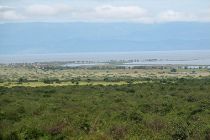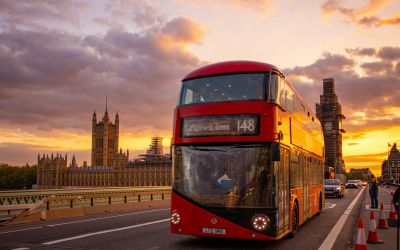Conflict between Uganda and DRC as border shifts
Uganda is becoming ever smaller as the River Semliki, which colonialists dictated was to be the border between Uganda and the democratic Republic of Congo (DRC), widens.

Uganda is becoming ever smaller as the River Semliki, which colonialists dictated was to be the border between Uganda and the democratic Republic of Congo (DRC), widens.
A report published by the National Environment Management Authority (NEMA) indicates that in the past 10 years the width of the river could have doubled.
Disasters such as this, that are caused by climate change, have been leading talks at the 16th Conference of Parties (COP16), as many countries – most notably developing countries – are calling for a climate aid fund. The fund would help vulnerable nations adapt to climate change, with the use of flood barriers and funds to help areas devastated by weather related disasters.
Three years ago the River Semliki, burst its banks and shifted deep into the western border district of Ntoroko. Increased flooding of the river, meant that in recent years the river has experienced major shifts, and started to change its course.
This is just one example of the way changes in the local weather patterns are affecting people in the region. With the changed seasons, farmers no longer know when to plant and harvest, diseases such as malaria are spreading into new areas, and the moving river means that Uganda is shrinking.
In an interview by reporter James Randerson, a farmer and cattle herder in Kabimbiri western Uganda, Amos Mwesige spoke about his anger and frustration. Mwesige is angry because the land that has been in his family for generations is now on the other side of the river, he said: "The land where our grandparents used to cultivate – it is now Congo. It is now being controlled by [the Congo government]. I have to go and kneel before them: Congo's leadership."
Worse still, Mwesige and many like him, have to pay for the land that was once theirs. He has to pay one cow per year in rent.
Reporter, Gerald Tenywa, spoke to Lydia Kobusingye, who lives in the Ntoroko Township and has the same problem as Mwesige, and has to travel by boat everyday to cultivate her land. "I stay in Uganda but I have to cross the river to dig in the DR Congo. It is hard to get UGS500 every day for a return journey to the DR Congo across the river.
"Can you imagine I have to pay another UGS100,000 as rent for my own land, which is now in the hands of the Congolese authorities. It is not our fault that the river shifted," Kobusingye said.
It is problems such as these that were integral to negotiations at climate talks in Cancun. Developing countries are hoping that the climate aid fund will help people like Mwesige and Kobusingye.
At the moment delegates are in discussions over a climate aid proposal made by a group of economists, finance ministers and heads of state on how to raise USD$100 billion a year by 2020. The plan includes taxes on shipping, aviation, carbon and the redirection on fossil fuel subsidies.
Oxfam believes that using the example of Mwesige and Kobusingye, shows critics of a new fund how vulnerable people in developing countries are, due to climate change.
John Magrath, a climate change researcher at Oxfam, said: "For generations, they have relied on fairly set weather patterns and an environment that has served them well, but now they are undergoing great change and heightened risks to their health, security and welfare."
At present, people like Mwesige and Kobusingye are on their own, and things will only change for them when an agreement is made. What most fear now is that violence will start, especially as there are still Congolese rebel groups in Uganda. With the moving of the river and because land has been redistributed, violent clashes could happen once again.
Author: Charity Knight | Climate Action
Image: sarahemcc | flickr





_-_frame_at_0m5s_400_250_80_s_c1.jpg)
